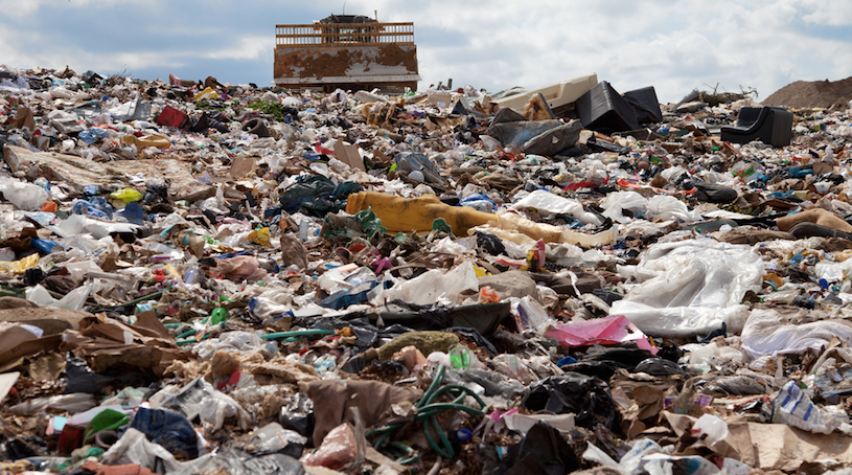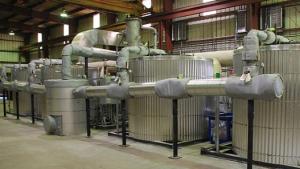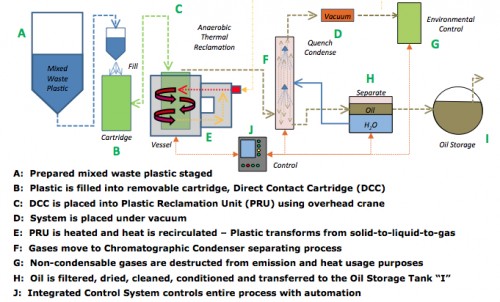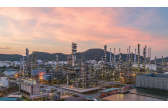
When you're the biggest trash hauler in the US, the world's growing stash of trash is your oyster. And Waste Management Inc, which rakes in $12.3 billion every year carting rubbish away to landfills, has unearthed its pearl, worth an optimistic $40 billion a year. That's the estimated value if all 112 million tons of trash it hauls were diverted from landfills and converted into fuels and chemicals, Carl Rush, VP of Waste Management's Organic Growth unit, told Businessweek. Since about 82 percent of that horde is still left untouched today, that's a huge profit waiting to be unearthed. Waste Management has already been producing energy from trash, incinerating garbage at 131 landfill facilities to make electricity, while also capturing methane at others - most going to help fuel their huge fleet of trucks (view company video). The company throws out impressive stats on its website: its landfills produce over 550 megawatts of electricity, enough to power more than 440,000 homes. The combined operations produce more renewable energy than the entire solar industry in the United States. Wow. Those numbers open your eyes to Waste Management's role in the energy future.
Becoming an energy venture capitalist
But Waste Management wants to boost its energy production even further, and, to find promising new technologies, it has become an eager venture capitalist, buying stakes in eight companies that turn trash it into heat, power, fuel and chemicals. One of its most promising investments is Agilyx, a small Oregon-based company that cooks dirty, unsorted plastics using pyrolysis into useful hydrocarbons. Already a long way from the workbench, the company has produced over 250,000 gallons of fuel

at a prototype facility over the last three years. Agilyx has proven that it can convert a ton of plastic into about 5 barrels of oil, according to chief executive officer Chris Ulum, turning a ton of waste into about $520 of oil. Those numbers impressed Waste Management, which is currently building a plant in Oregon to use Agilyx's fuel technology, and its investment includes rights to the plastic-conversion technology for a decade. Agilyx plays to Waste Management's major strength: Americans toss out about 33 million tons of plastic each year, and very little is recycled because plastics can be contaminated by the mixing of types.
Converting unsorted plastic into crude
Fortunately Agilyx can convert unsorted plastic of all types into synthetic crude oil. The base system can convert 10 tons of plastic into 60 barrels of oil each day for about $60 a barrel; so with oil currently selling at around $90 a barrel, it's definitely cost-effective. A short video gives an overview:

Because Agilyx employs what CEO Chris Ulum calls a "distributed-manufacturing approach," the company will deploy modular units at active municipal and industrial waste sites, eliminating costly shipping expenses. "One of the things that we think is a real virtue of technology is that it's scalable - we don't sell a small, medium or large system," Ulum told Biorefining Magazine. "We sell a basic building block that then can be scaled to match the requirements of our clients. We can have a solution that is good for not only large cities, but also small towns." Competing against the price of oil won't be easy. But the sheer quantities of landfill plastic mean that Agilyx should be able to provide fuel to customers under fairly long-term contracts with stable pricing. For more on Agilyx's technology, check out this Agilyx PowerPoint presentation.
Will more corporations embrace these energy solutions?
Images: Agilyx technology, Agilyx; Landfill, Ashley Felton
Comments
- Log in to post comments
- Log in to post comments
- Log in to post comments
- Log in to post comments







